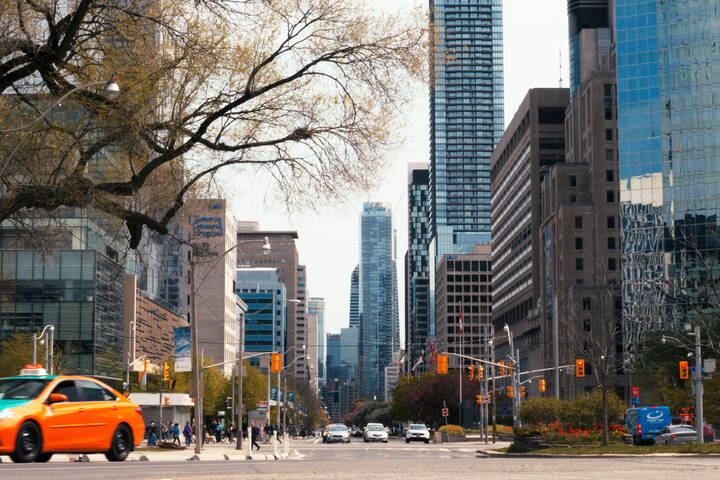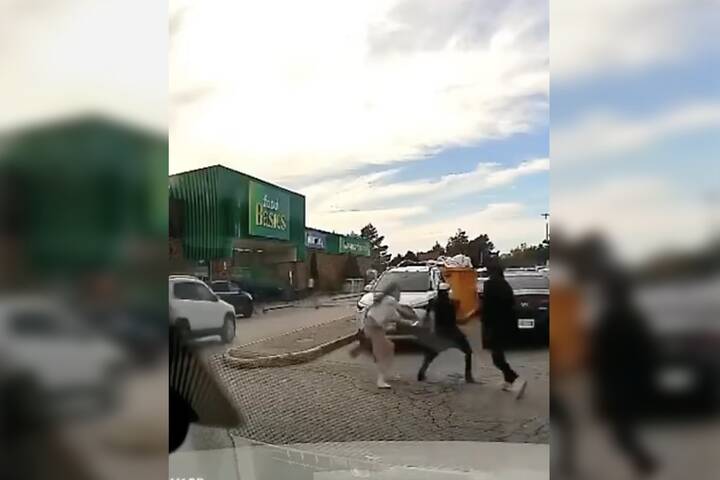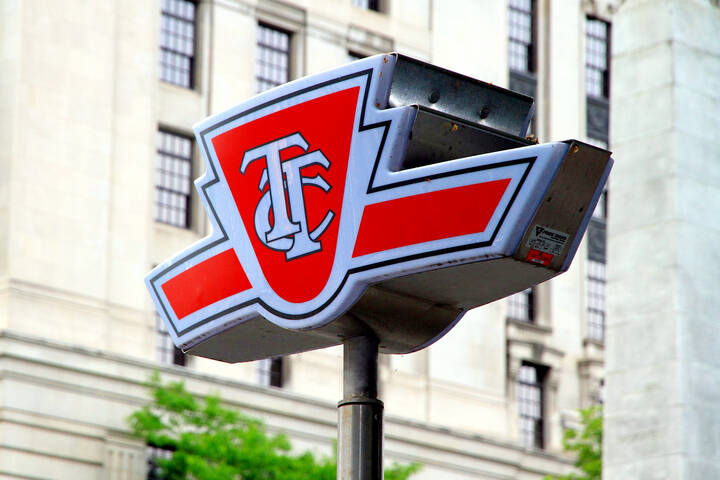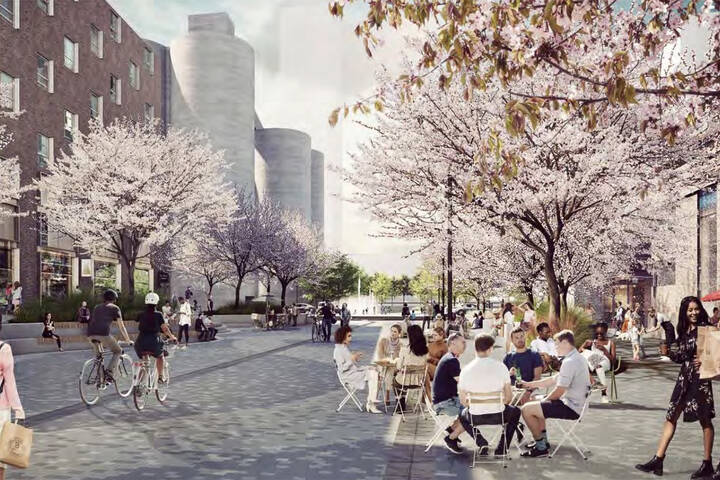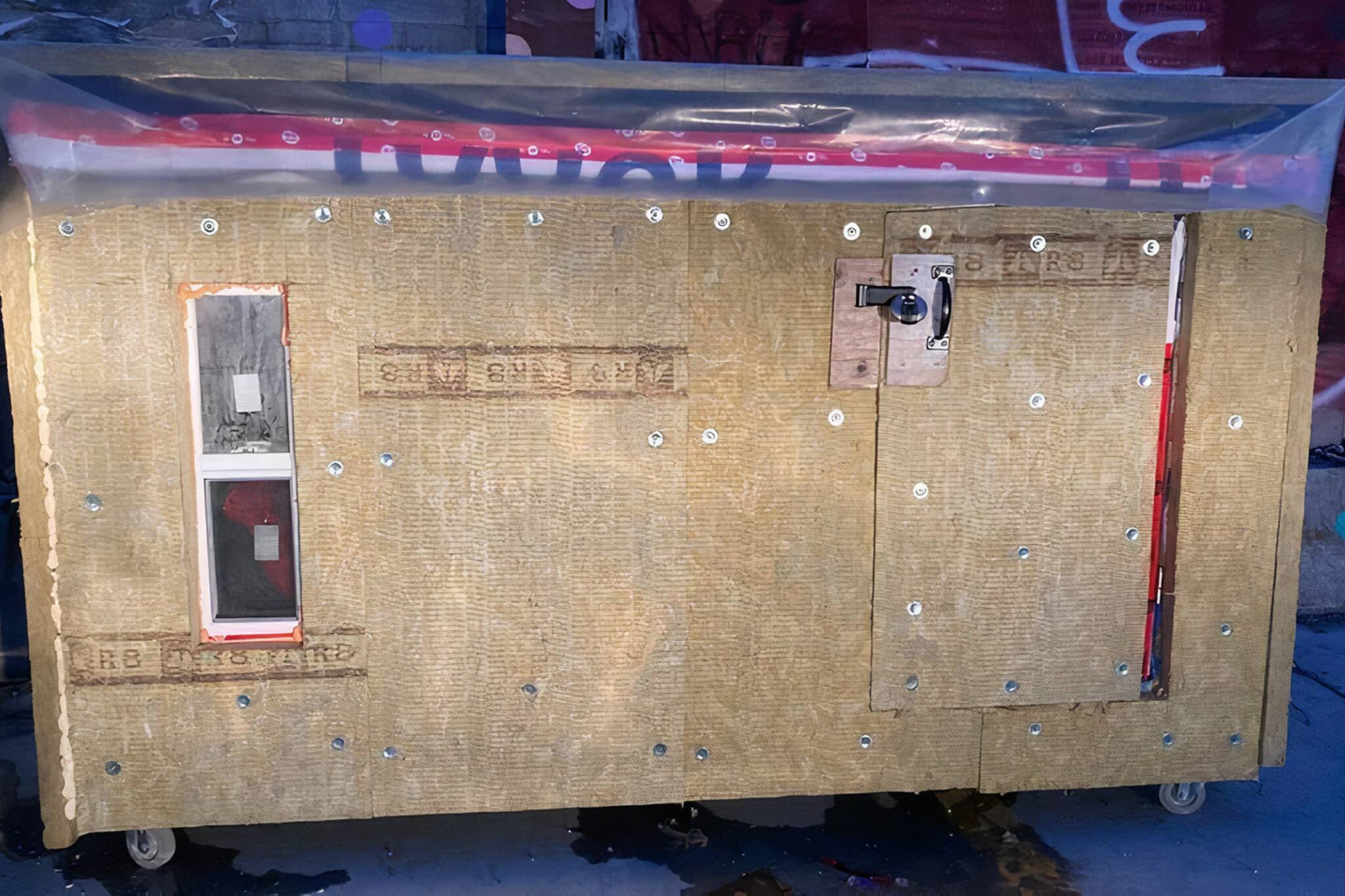
People in Toronto are demanding that the city allow tiny shelters this winter
People in Toronto were heartened to learn that a 28-year-old carpenter named Khaleel Seivwright decided to dedicate his time and skills to making tiny, insulated shelters for those experiencing homelessness in Toronto earlier this year, but the city is now trying to shut down the operation.
Seivwright has been working on creating as many shelters as possible over the past couple of months thanks to the more than $160,000 raised through a GoFundMe campaign, but he received a letter earlier this week from the city saying he does not have the necessary permits to install these structures on city property and therefore must "immediately cease the production, distribution, supply and installation of such shelters."
The city's move to try and shut down an initiative that would provide warmth and shelter to many of the homeless residents who may otherwise be left to sleep out in the cold this winter thanks to the shelter system — which is often at capacity and has been made worse by the pandemic — has people up in arms.
Khaleel Seivwright should be celebrated and supported, not threatened to be charged. If laws and systems aren't protecting human life and rights, then they must change. @cityoftoronto #Toronto #housingisahumanright https://t.co/cqLJGakuUR
— Harman ਸੰਧੂ (@1harmansandhu) November 24, 2020
As a result, Seivwright and volunteers started a petition calling on the city to change their stance, and it has garnered 1,931 signatures so far.
"Toronto Tiny Shelters (TTS) is demanding that the City of Toronto immediately reverse their stance on temporary shelters, allowing them to remain in City parks during the Winter of 2020-2021," the petition reads.
"We also insist that the city ceases to intimidate and forcefully remove those residing in encampments in our city."
Sign the petition to demand that the city allow Toronto Tiny Shelters (the ones Khaleel built) to remain in encampments, and that encampments not be cleared.https://t.co/8tOeWjtyVX
— Encampment Support Network Toronto (@ESN_TO) November 25, 2020
Toronto's homelessness crisis has been put on display throughout the pandemic as many without housing have chosen to take up residence in public parks rather than subvert themselves to the risks of staying in a crowded shelter.
Advocates estimate that there are 1,000 people currently living outside in Toronto, and the city's shelters only have space for 560 of them.
But camping overnight in a park is against a municipal bylaw, and the city has been consistently evicting residents and their belongings from the encampments despite the fact that many say it's where they feel safest.
What kills me is #Toronto legit issued all kinda legal warnings & threats to a young Black carpenter trying to build tiny shelters for homeless in the absence of ANY care from city or province to do so in midst of a MF PANDEMIC + impending winter but POOR BUSINESS OWNERS amirite! https://t.co/4K667YMv4O
— Cookie Monster's Ex (@UrGirlSaigon) November 25, 2020
"We believe that in the absence of suitable shelter or housing, every person has the right to a safe, warm and consistent place to sleep," reads the petition. "A place where they can safely store their possessions and maintain connections to their community, where they have vital support networks and services."
And Seivwright's shelters are just that. They can be placed anywhere, and they're insulated, water-resistant and equipped with a fire/carbon monoxide detector.
They have also been well-received by those who've stayed in them, according to Seivwright.
Khaleel Seivwright is offering a progressive + immediate solution.
— Tabban Soleimani (@tabban__) November 22, 2020
yet, instead of collaborating and leaning in you send him a warning letter?
this is performative. tone deaf. and shows how government officials think: in reverse. https://t.co/Q7psHW0yTN
"These shelters are not meant to be a permanent solution. These shelters are not a replacement for the city's shelter system," the petition states.
"They are an alternative for individuals who a) are unable to obtain a shelter bed, b) do not feel safe staying in a shelter (due to COVID or other reasons), or c) have been kicked out of a shelter/hotel and have no other options. These shelters are needed to protect people from freezing to death during the Canadian winter."
But while many are hoping the city will reverse its stance, Seivwright has said he will continue to build the tiny shelters either way and, if necessary, place them on private property to avoid having to face legal action.
Latest Videos
Latest Videos
Join the conversation Load comments

